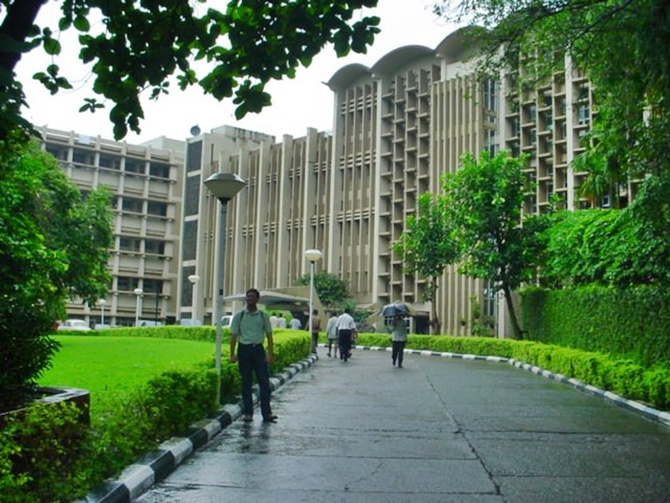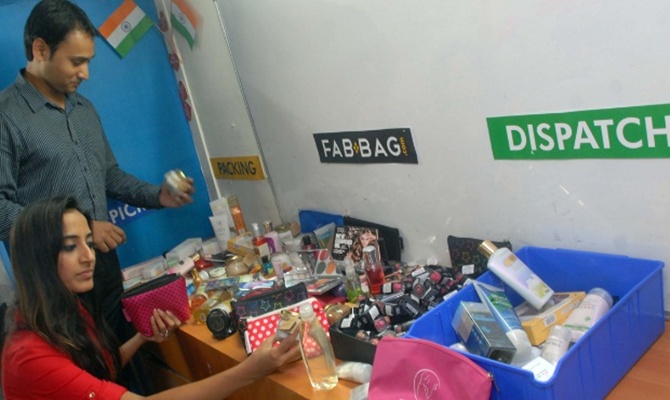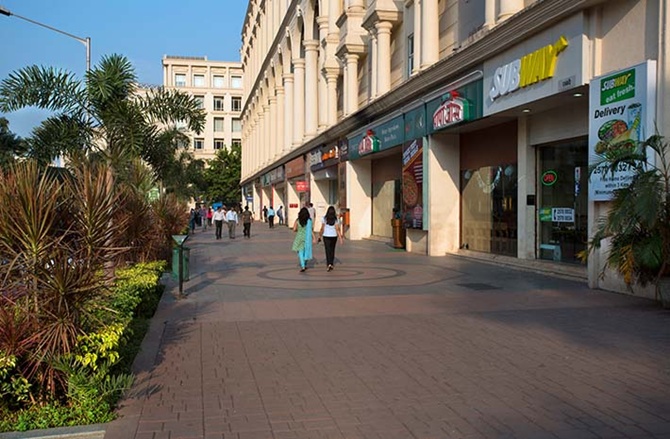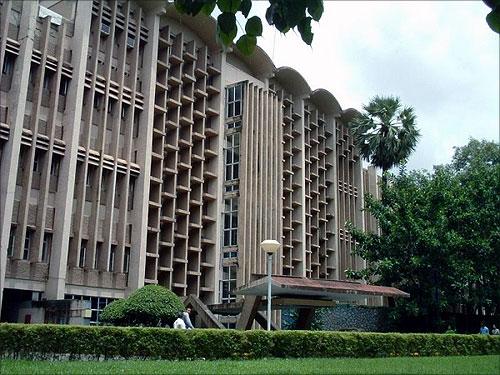
Powai, once a distant neighbourhood that only made news when there was a leopard sighting, is today being compared to Silicon Valley.
There is more than just coffee brewing at the cafés on Central Avenue in Powai, a neighbourhood in north-east Mumbai.
Here, there’s a rush to take the corner tables because these have access to power sockets.
Mobile phones and iPads are plugged in and young men in t-shirts and shorts are often seen hunched over laptops. Some are in groups of two or three, working quietly or bickering over how to fine-tune a website’s layout.
Others, dressed more crisply, show less camaraderie and engage in what seem to be interviews or meetings. Their conversations aren’t coffee-shop gossip, but contain words like ‘e-commerce’, ‘scalable concept’ and ‘seed fund’.
And unlike the routine crowd of romantics and college goers that populate such spots, everyone here looks like he or she has something at stake. “Any time you walk into these food joints, you will hear at least one start-up conversation in progress,” says Zishaan Hayath, co-founder of Toppr.com and Powai Lake Ventures, an angel investment club.
…

Hayath’s 18-month-old company is among several start-ups that have sprung up in Powai, the result of endless cups of java in cafes there. It was funded by pooling together money from his friends, which later prompted the Indian Institute of Technology Bombay graduate to form a group and support other start-ups in a similar manner.
Still in their late 20s or early 30s, the members of Powai Lake Ventures seem rather young to be angel investors, but their contributions have helped boost the small ecosystem.
While entrepreneurial businesses have been developing here for the past six years, the recent success of companies such as Housing.com and Ola Cabs has thrust Powai into the limelight and given it the identity of a start-up hotspot.
Powai, once a distant neighbourhood that only made news when there was a leopard sighting, is today being compared to Silicon Valley.
The locality, home to IIT-Bombay and the National Institute of Industrial Engineering (NITIE), is steadily attracting fledgling entrepreneurs for purposes of both work and residence.
…

The reasons are varied - relatively new infrastructure, lower rents than South Mumbai and the proximity to engineering colleges which makes hiring easier. For many IITians, the instinct on graduating is to find work that lets them live in Powai and extend college life in somewhat Peter Pan-style.
“What we love about the college are its people. And you find a heavy concentration of them in Powai so naturally one wants to stay back,” says Rahul Yadav, CEO and one of the 12 co-founders of Housing.com.
Housing.com co-founder Rahul Yadav at his office in Powai In fact, this desire was so strong for Yadav and his friends that they rented a flat in a residential complex that did not allow bachelors by befriending the secretary who was, as it turned out, an IIT alumnus.
Their map-based housing portal, launched two years ago, operated out of that apartment for some months until residents raised objections. They later moved to a conventional office and have since added 14 branches serving 11 cities.
…

Another Powai-bred start-up Ola Cabs, which moved to its largest market Bangalore recently, has scaled up to cover six cities.
“IIT-Powai is witnessing good start-up energy,” says Suvir Sujan, co-founder and MD, Nexus Venture Partners, which has funded Housing and Sedemac out of Powai. “All kinds of start-ups are emerging from consumer services like restaurants to cloud-based software to ecommerce.”
Once a heavily wooded agricultural locality around an artificial lake, created by the British in 1799, Powai started moving towards change in the late 1950s when a portion of the area was demarcated for the construction of IIT.
The first modern buildings rose around 1975 and by 1985, after Hiranandani constructed its sprawling building complex, the area began transforming into a moderately upscale residential hub.
…

Residential prices currently range from Rs 12,000 to Rs 22,000 per square foot. While a number of influential builders have already established complexes in Powai, new constructions including by L&T and Wadhwa Group have been coming up too.
Over the last decade, Powai has largely become self-contained, and residents who work here say they seldom travel to other parts of the city. Most of the neighbourhood is clutter-free and presents a pretty picture with Greco-Roman buildings, clean boulevards, a lakefront and hills in the background.
A number of cafes and pubs have opened up, including Singapore-based Harry’s, the first for the chain in Mumbai. The presence of well-known developers like Hiranandani, Raheja and Godrej and schools, including Bombay Scottish, is encouraging for young professionals looking to move in with families, says Ramesh Nair, chief operating officer, (business) at Jones Lang LaSalle India.
…

Companies like Yowoto and Quikwallet, started by non-IITians, are also part of the community. Other Mumbai locations such as Ghatkopar, Vikhroli, Andheri-Kurla road or Sakinaka are now coveted because of their proximity to Powai.
“A lot of founders here are those who have looked for space in the western suburbs or south Mumbai, but could not afford it. And Powai’s success is also because they are determined to make this area the best in the city,” says BITS Pilani’s Kaushik Mukherjee, who co-founded FabBag.com with IIT-Madras graduate Vineeta Singh.
Their company, which sends monthly grooming products on subscription, occupies a small 600-square foot space on two floors in Powai Plaza. “Even if we shift, it would be to a better office, but not outside Powai,” says Mukherjee.
Local entrepreneurs have an informal network and are willing to share leads on where to get cheap photocopies or bulk deals on everything from couriers to laptops or adhesive tape. Phone lines and Internet connections are set up within a day.
…

As a result, businesses can be established and run at a lower cost than in some other areas. “You find a whole gamut — from small, run-down shops to swanky business parks offices,” says Nikalank Jain, co-founder of yowoto.com, a portal for information on raising children.
The company, he adds, has moved office twice so far and has always found accommodation within two weeks. The commercial rentals in Powai are between Rs 60 and Rs 120 per square foot, compared with more than Rs 250 at Bandra-Kurla Complex or Nariman Point. Navi Mumbai rates are cheaper at Rs 40 per square-foot, but these are possibly ignored by businesses, which want to be part of the burgeoning tech start-up culture, feel real estate experts.
There are, however, some challenges. Traffic congestion adds to travel time in the peak hours. Also, Powai is at some distance from facilities like railway stations. Some of these problems are expected to be solved once the metro train system is completed. At the same time, rents are climbing and could slip out of reach of younger professionals, says Nair.
…

“It could become difficult to retain employees, who have a pay rickshaws for travelling from the railway station to Powai daily unless there are more affordable housing options locally,” says FabBag’s Mukherjee.
The growth of Ola Cabs and Housing.com, which have been raising funds successfully at every stage, has boosted morale and the atmosphere in IIT-Bombay, so much so that that many students want to be a part of start-ups, says Nikhil Jain, co-founder of Enelek Power.
His two-year-old company, currently incubated at IIT-Bombay’s Society for Innovation and Entrepreneurship (SINE), has no trouble attracting talent from the college.
In its 10 years, SINE, which hosts and mentors early-stage entrepreneurial businesses for up to three years, has spawned more than 50 tech start-ups, including ideaForge and ThinkLabs Technosolutions. However, it only supports product-based companies that involve some intellectual property.
…

Purple Squirrel, another start-up incubated at SINE, has been organising field visits to acquaint students with career prospects other than working with conventional industry giants.
Founder Aditya Gandhi says engineering graduates, who often dabbled with big IT firms before looking at alternatives, are now considering an early transition to starting up or working with start-ups.
Housing.com’s Yadav says on occasion, IIT-Bombay freshers have opted out of the campus placements to come to them for an interview.
Big corporations like Tech Mahindra, Wipro, L&T Infotech and Cognizant lie cheek-by-jowl with a growing number of start-ups. The vibe at these companies is young and energetic.
CEOs wear sweatshirts, carry backpacks, answer calls after only a couple of rings and manage offices where sometimes the average age of employees is 23.5 years. Among the few bits of furnishing in offices are mattresses that hint at long working hours.
…

While they are able to make do with tight budgets, there is a need for investments. But venture capital firms such as Nexus are not packing their bags and moving in just yet.
“(It is) still early days in Powai. More funding and more successes are needed to fuel the ecosystem,” says Sujan. As of now, much of the initial investment for upcoming start-ups is from personal savings or IIT-Bombay alumni who give Rs 5-10 lakh for each project, notes Yadav.
What separates Powai from other start-up hubs in India is its level of seriousness, feels Hayath. “Considering the higher cost of living in Mumbai, the companies here are generally less frivolous in nature than those in, say, Bangalore or Pune.”
Their growth has been unplanned and natural. Outside of IIT-Bombay, there are no systematic support systems for start-ups and Internet- or mobile-based businesses have bloomed on their own.
…

Nikhil Mathur, CEO and co-founder of yowoto.com, says they are looking to offer support systems and incubation to start-ups in the future.
The winds of change have started blowing in small ways, though. Sand Hill Counsel, which is the legal advisor for many start-ups in the region, recently shifted from Worli to Chandivali near Powai to be closer to clients.
“Mumbai is the financial capital, but it has been losing ground to other cities because of its unaffordability. Powai provides entrepreneurs a viable option to stay put,” says Shantanu Surpure, managing attorney with the law firm. “I expect more people to move to Powai in the future.”
Start-up founders here welcome the attention that comes from comparisons with Silicon Valley but reject the moniker ‘PowaiValley’.
“We don’t have any valleys here. We need a different title. Maybe Powai Lake or Hills,” smiles Hayath. While things look bullish, it is too soon to be euphoric, adds Gandhi.
“Start-ups cannot be overnight successes.” Then, drawing parallels between Powai and the Aam Aadmi Party, he adds, “There are talented people in Powai with good ideas.
They should be allowed to grow organically without the burden of unrealistic expectations.”